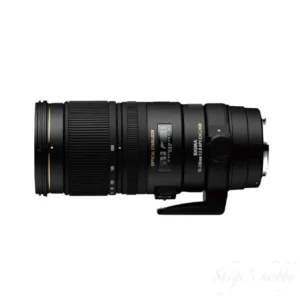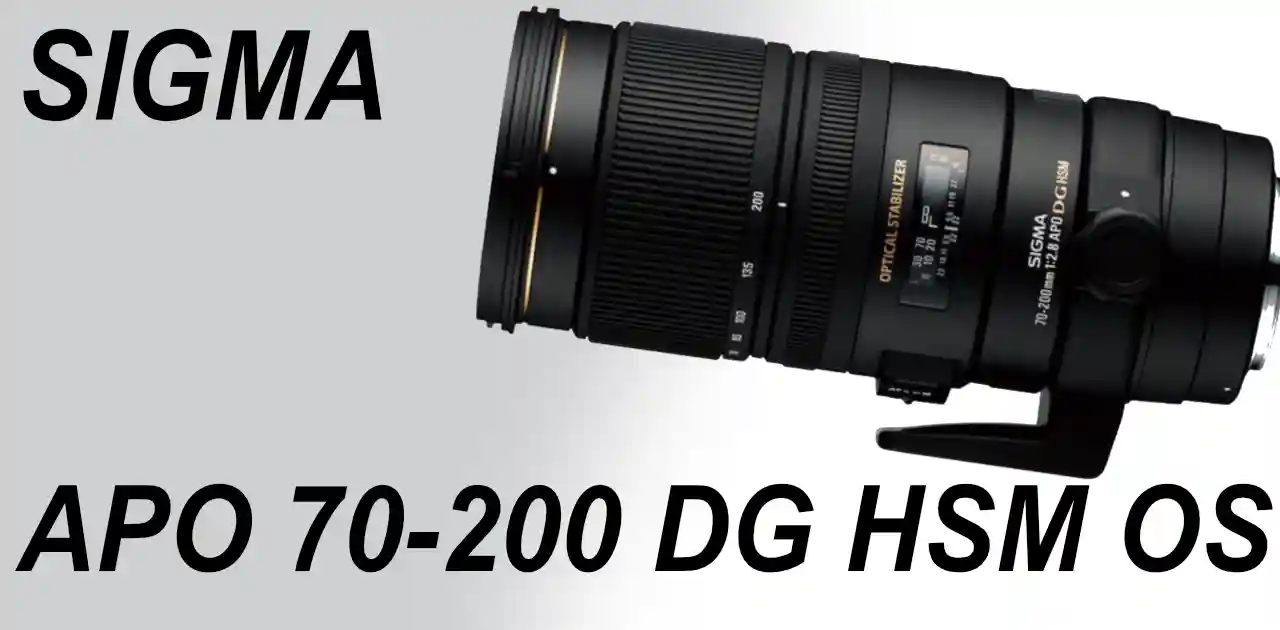A review and sample images using the SIGMA 70-200mm APO DG HSM OS with the SIGMA sd Quattro H.
- Please see the disclaimer regarding advertising here.
- Italicized links in the text are advertisement links that take you to other sites.
Table of contents
Gallery
The following cameras were used to take the sample photos:
- SIGMA sd Quattro H
Review

1.Overview
The SIGMA 70-200mm APO DG HSM OS is an ultra-wide-angle zoom lens for 35mm full-frame sensors, released by Sigma in 2018 (A18).
As the lens’s name suggests, the focal length is 70mm-200mm, and the aperture remains F2.8 throughout. The minimum focusing distance is measured in centimeters at a focal length of 70mm.
The “DG HSM OS” designation stands for “DG” and “HSM” (ultrasonic motor drive), respectively. The “OS” stands for “Optical Stabilizer.”
The lens features a luxurious construction of 22 elements in 17 groups, incorporating SLD (Special Low Dispersion) glass and FLD (“F” Low Dispersion) glass, which has properties similar to fluorite.
The front filter is 77mm in diameter, and a plastic bayonet hood can be attached.
The Sigma SA mount version has no aperture ring as the aperture value is controlled from the camera, but instead has a zoom ring, focus ring, and AF/MF switch. The lens position indicator is covered by a plastic cover.
This lens is available in five mounts: Sigma SA mount, Nikon F mount, Canon EF mount, Sony A mount, and Pentax K mount.
2.Usability
I purchased the SIGMA APO 70-200mm DG HSM OS for use with the SIGMA sd Quattro H.
Since Sigma has not yet released the 35mm full-frame (full-frame) sensor FOVEON, I have not used it with a 35mm full-frame lens. However, when used with the SIGMA sd Quattro H, the resolution is excellent, the image stabilization (OS) works flawlessly, and aberration correction in the images is also excellent. The APO (apochromat) lens also minimizes color bleeding.
In terms of lens operability, the zoom ring is located at the front of the lens and is wide, and it is intended to be used as the lens’s pivot point. In contrast, the focus ring is narrow and tight, and located toward the base of the lens, making manual focusing difficult.
Furthermore, the lack of torque when turning is a common feel with all Sigma AF lenses, and the lens is primarily intended for use in autofocus.
Thanks to the lens’s brightness, the autofocus performance of the SIGMA sd Quattro H was able to achieve focus with a reasonable degree of accuracy.
Attaching a hood makes the large lens even larger, so I used it without one, but there were no suspicious glare in backlit situations.
3.Summary
In conclusion, to sum up the SIGMA APO 70-200mm DG HSM OS is a medium telephoto zoom lens with image stabilization. With a bright maximum aperture of f/2.8 and sufficient resolution, it is suitable for high-resolution cameras such as the SIGMA SD1 and sd Quattoro series, as well as high-pixel cameras from other manufacturers.
Specifications, considerations, etc.
The Daisangen lens is a holdover from the film era. It comes from the mahjong term Daisangen, a yakuman formed by collecting three of the three colors: white, white, and medium. The name likens the three white, white, and medium cards in mahjong to the three types of zoom lenses with a maximum aperture of f/2.8: wide-angle, standard, and telephoto.
Lenses with this specification sold well during the film camera era, so they were a product that camera and lens manufacturers alike focused on.
During the film era, ISO 100 was the standard ISO speed, and an maximum aperture of f/2.8 was valued as a guideline for ensuring a shutter speed that minimized the risk of camera shake when shooting handheld in most situations. However, in reality, there are times when an maximum aperture of f/2.8 is not enough, such as at dusk. Furthermore, with the digital era and the regular use of high ISOs such as ISO 3200, the need to insist on an maximum aperture of f/2.8 has diminished.
Sigma has also focused on lenses with this specification, incorporating an ultrasonic motor into its 70-200mm F2.8 lenses from the early days, and has updated its ultrasonic motor-equipped lenses six times, including minor changes.
In the 1990s, a certain lens magazine stated that Sigma’s 70-200mm F2.8 lenses had a long minimum focusing distance, but since around 2005, they have achieved a minimum focusing distance comparable to that of other manufacturers’ lenses.
The fact that lenses have become larger and heavier with each upgrade in order to improve performance can be a bit of a pain for those with less physical strength. Perhaps Sigma has repented somewhat, as they have recently released lenses such as the Contemporary 28-70mm F2.8 DG DN that aim to balance performance and compactness, and I hope they will continue to pursue smaller and lighter lenses.
- APO 70-200mm F2.8 EX HSM (for SLR cameras, late 1990s to around 2004)
- APO 70-200mm F2.8 EX DG HSM (for SLR cameras, from around 2005 onwards)
- APO 70-200mm F2.8 II EX DG MACRO HSM (for SLR cameras, from around 2007 onwards)
- APO 70-200mm F2.8 EX DG OS HSM (for SLR cameras, from around 2010 onwards)
- 70-200 DG OS SPORTS (for SLR cameras, from 2018 onwards)
- 70-200 DG DN OS SPORTS (for mirrorless cameras, from 2023 onwards)
| Items | 70-200mm F2.8 APO EX DG HSM | SIGMA 70-200mm APO DG HSM OS | 70-200 DG OS SPORTS |
| Focal length(mm) | 70-200 | 70-200 | 70-200 |
| Max aperture | F2.8 | F2.8 | F2.8 |
| Min aperture | 32 | 22 | 22 |
| Leaf blade | 9 | 9 | 11 |
| Lens Construction | 17 elements in 14 groups | 22 elements in 17 groups | 24 elements in 22 groups |
| Min distance(m) | 1.8m | 1.4 | 1.2 |
| Lens length(mm) | 184 | 198 | 203 |
| Max diameter(mm) | 86 | 86 | 94 |
| Filter Size(mm) | 77 | 77 | 82 |
| Weight(g)(lens only) | 1,270 | 1,430 | 1,805 |
| lens hood | LH835_02 | LH850-02 | LH914-01 |
| Release date | 2005 | 2010 | 2017 |
| lens mount | Sigma SA mount Canon EF mount Nikon F mount Sony A mount Pentax K mount | Sigma SA mount Canon EF mount Nikon F mount Sony A mount Pentax K mount | Sigma SA mount Canon EF mount Nikon F mount |
| Price(Yen/No-tax) | ¥140,000 No HSM Version=¥130,000 | ¥150,000 | Open |
Reference links
- SIGMA 70-200mm APO DG HSM OS
- APO 70-200mm F2.8 EX DG HSM
- APO 70-200mm F2.8 II EX DG MACRO HSM
- Sports 70-200mm F2.8 DG OS HSM
- Sports 70-200mm F2.8 DG DN OS
Affiliate links

Update history
- 2025.9.1



Be First to Comment